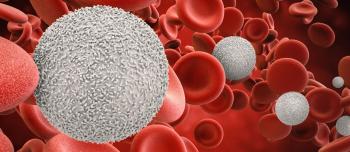A study published in October suggests that oral tranexamic acid (TA) may have two benefits: reducing heavy menstrual bleeding (menorrhagia) in women and improving their quality of life. According to the U.S. Food and Drug Administration (FDA), menorrhagia is reported each year by 25% U.S. women of reproductive age, about 3 million altogether. The lead investigator of the study was Andrea S. Lukes, MD, MHSc, from the Carolina Women's Research and Wellness Center in Durham, NC.
TA, a synthetic derivative of the amino acid lysine, has been used to prevent bleeding for nearly 25 years. It was first approved by the FDA in 1986 as an injectable drug under the brand name Cyklokapron, to reduce or prevent bleeding during and following tooth extraction in patients with hemophilia.
In late 2009 the FDA approved Lysteda™, an orally-administered TA therapy, and the first nonhormonal product to treat menorrhagia. Manufactured by the Switzerland-based company Ferring Pharmaceuticals, Lysteda™ is an antifibrinolytic agent that prevents the breakdown of blood clots.
In the study, Lukes and her colleagues assessed the efficacy and safety of the product by treating women with menorrhagia, defined as those with a blood loss of at least 80 mL per cycle. The women were placed in one of two groups: 115 were treated with TA, 72 with a placebo (an inactive substance used as a control to compare the effectiveness of the actual drug). The participants took the medication for up to five days per cycle for six menstrual cycles.
The study yielded encouraging data. For example, 40.4% of the women who received TA showed a significantly greater reduction in menstrual blood loss vs. 8.2% of the women in the placebo group. In addition, the women in the TA group exhibited considerable improvements in limitations in social, leisure and physical activities; work inside and outside the home; and “self-perceived” menstrual blood loss. Further, the majority of adverse events reported were mild to moderate.
“In this study, a new oral tranexamic acid treatment was well tolerated and significantly improved both menstrual blood loss and health-related quality of life in women with heavy menstrual bleeding,” concluded the authors.
The study, “Tranexamic Acid Treatment for Heavy Menstrual Bleeding: A Randomized Controlled Trial,” was published in the October 2010 issue of Obstetrics & Gynecology.
Source: Medscape Medical News, September 29, 2010





